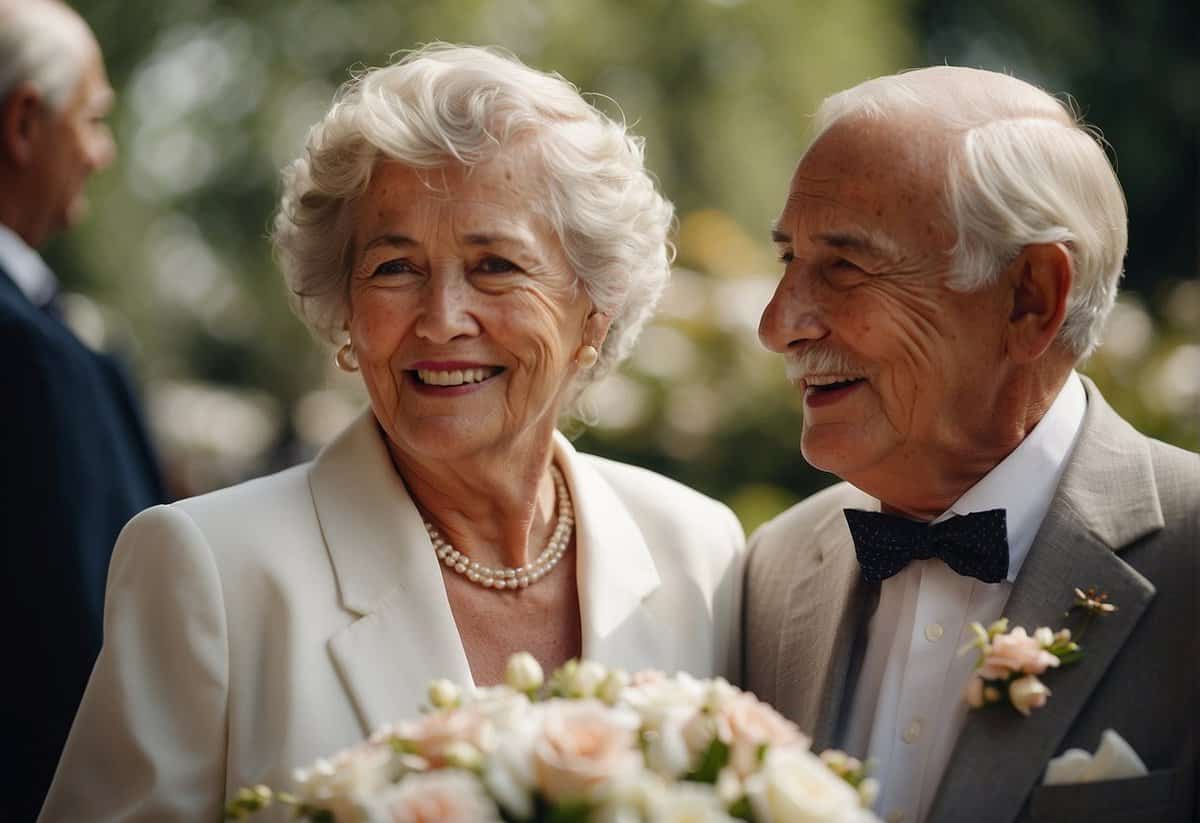Why Are People Marrying Later? Understanding Modern Relationship Trends
In recent years, the trajectory of people’s lives has shifted, including the age at which many choose to marry. This change reflects deep societal evolution and personal choice. The reasons behind opting to walk down the aisle later range from pursuing higher education and career goals to simply desiring more personal growth and experiences before committing to a lifelong partnership.

Economic factors also play a significant role. With the cost of living rising and job markets becoming increasingly competitive, many feel the need to secure financial stability before considering marriage. Additionally, as norms around living together before marriage and having children outside of marriage relax, the pressure to marry early has diminished, giving way to new relationship dynamics.
Key Takeaways
- The age of marriage is rising as individuals prioritize personal and professional development.
- Financial stability is a significant consideration before entering marriage.
- Societal norms around marriage are evolving, allowing for more flexibility in relationship timelines.
Societal and Demographic Shifts

In exploring why you might choose to marry later, it’s essential to consider the profound societal and demographic shifts that have redefined the landscape of marriage. These shifts touch on everything from the attitudes generational cohorts hold toward marriage to the hard numbers that illustrate how the median age at marriages has trended upwards.
Generational Attitudes
Your perception of marriage is likely influenced by the era you were raised in. With each passing generation, attitudes towards marriage have evolved. For millennials, marriage is often seen not as a societal expectation but as a personal choice made for love and companionship. This generation tends to prioritize individual growth and financial stability before walking down the aisle. The changes in sentiment are partly due to observing a high divorce rate among parents or older peers, which may foster caution when it comes to commitment.
Median Age and Marriage Trends
When you look at the numbers, it’s clear that people are getting married later in life than ever before. Studies by Pew Research show that the median age at first marriage has been on the rise; in the early 1960s, it was in the early 20s, but that figure has since increased significantly. For many, especially women, the median age for first marriage is now in the late 20s. Factors contributing to this shift include a greater emphasis on career advancement and the increased prevalence of cohabitation before marriage. Delayed marriages have become less common, with many opting to solidify their personal and professional lives before tying the knot. The notion of marrying later has essentially doubled since 1960, changing the way you might approach long-term relationships.
Economic and Educational Factors

When you consider why you or your peers might be delaying marriage, economic and educational factors often play a significant role.
Financial Stability Concerns
You live in a time where financial stability is a major concern for many. The desire to have a steady career and solid finances before entering marriage is becoming more prevalent. For example, dealing with student debt has become a common part of many young adults’ lives, sometimes pushing priorities like marriage further down the line. When you take into account recent US Census Bureau data, it indicates that economic inequality can greatly affect when, or if, people decide to tie the knot.
Impact of Higher Education
Higher education also contributes to marrying later. Your time at an institution, perhaps pursuing a degree with the hopes of becoming a professor or advancing in your field, often extends well into what used to be the typical marrying age. Women, especially, are attaining higher education at increasing rates, which correlates with data showing women are marrying later, prioritizing their educational and career advancements. Pursuing higher education often means finances are channeled towards tuition and academic resources, rather than wedding plans or a family budget.
In both the pursuit of economic stability and higher education, the path you’re walking now is quite different from previous generations, influenced by modern financial and educational landscapes.
Changing Relationship Dynamics

In the evolving landscape of romance, you may notice how the traditional trajectory of relationships has shifted, affecting when and why you might choose to marry.
Cohabitation vs. Marriage
You’re living in a time when cohabitation has become practically a norm for couples, often perceived as a precursor or even an alternative to marriage. It’s not just about finding happiness together without the formalities; it’s also a way for you and your partner to test the waters of commitment and gauge relationship satisfaction. Cohabitation offers a set of legal rights that might differ from marriage, but it allows many couples to enjoy similar benefits without the official paperwork. For instance, Brigham Young University studies show that for some, living together is akin to a gift, giving you a chance to deepen the trust and assurance in your relationship without immediately entangling all legal and financial threads.
Perception of Marriage and Divorce
Your view of marriage today might be influenced by the increasing divorce rates. There’s a notable trend where you and many other young adults might be waiting to marry, largely out of a concern for finding lasting happiness and ensuring the right level of commitment. Unlike past generations, you’re armed with more options and societal acceptance to redefine what a committed relationship looks like. A marriage therapist might suggest that this cautious approach can contribute to healthier marriages in the long haul. Articles in outlets like Deseret News have highlighted how the perception of marriage is changing; divorce isn’t seen as a failure, but rather as a permissible end to a partnership that’s no longer satisfactory, making the decision to get married carry much more weight. You’re likely to think long and hard about whether marriage will add to your life before taking the plunge with your unmarried partner.
Psychological and Biological Considerations

When you think about marriage, psychological and biological factors play significant roles in the timing of this commitment. Your readiness to marry often ties into where you are on your journey toward emotional maturity and how your biological considerations, such as fertility or sex drive, influence your decision-making.
Emotional Maturity and Compatibility
You recognize that being emotionally mature is crucial before entering marriage. It’s about understanding your own emotions and those of your partner. Emotional maturity means being able to handle various situations in a relationship without unnecessary conflict. Compatibility emerges from this maturity, ensuring that both partners can sustain a healthy relationship. Researchers like Jason Carroll suggest that waiting longer to marry may result in more developed personalities, which can lead to stronger, more compatible unions.
Reproductive Timelines
Biologically, your decision to marry can also be influenced by fertility concerns. Women often think about their reproductive timeline, contemplating the best time to have children. This consideration can delay marriage as you or your partner may seek career stability first. Moreover, common trends like the inclination to cohabitate before marriage could be a way to test compatibility without the biological pressures of immediate child-rearing, which is notable in homes where both partners contribute to household chores. Decisions on when to marry might also reflect changes in sex drive and romantic love over time, as well as the complex dynamics of forming secure attachment bonds with a partner.
Frequently Asked Questions

In this section, you’ll find answers to common questions about the rising ages of marriage. Whether it’s the psychological aspects or societal shifts, these insights might shed light on why the “I dos” are happening later in life.
What psychological factors contribute to the trend of getting married at an older age?
You might find that personal growth, self-discovery, and financial stability are psychological factors influencing many to marry later. People are taking more time to understand their own needs and goals before committing to marriage.
How has the average age of marriage in the United States changed over the years?
Statistics indicate that people are marrying later than previous generations. As of 2021, the median age at first marriage was 30.2 for men and 28.1 for women, a noticeable increase from past decades.
What are some potential drawbacks of waiting until after 30 to get married?
Postponing marriage until after 30 can lead to a smaller social network to draw on for support and potentially more challenging fertility issues.
Is there a noticeable difference in marriage success rates for those who marry later in life?
Those who marry later often have more mature relationship dynamics, due to a better understanding of their partners and greater relationship satisfaction.
Why might Gen Z individuals be less inclined to get married compared to previous generations?
Gen Z may prioritize personal and professional development over marriage and are affected by their observations of marital instability in previous generations.
At what age do most people consider it ideal to enter into marriage?
While ideal ages for marriage can be subjective and vary by individual, many consider their late 20s to early 30s as a good time to tie the knot, balancing maturity with personal and financial readiness.

